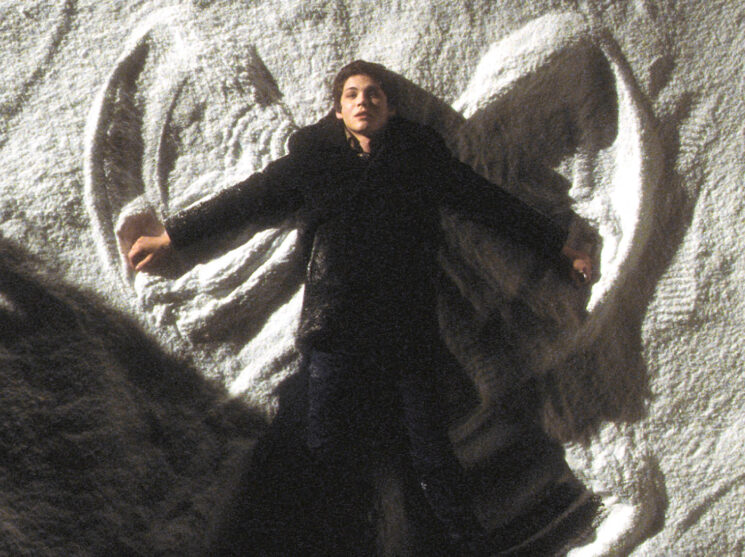
By Jenny Tran
Content warning: sexual themes, homophobia, drugs and mental illness; mentions of abuse, suicide and sexual assault
Dear friend,
I am writing to you because I recently finished reading “The Perks of Being a Wallflower” by Stephen Chbosky, and it changed my life. I want to tell you about it.
Incidentally, the book is also told through letters, written by a 15-year-old named Charlie in the 1990s. It is not specified who the letters are written to, but through them, we learn how Charlie’s life unravels during his first year of high school.
Throughout the novel, Charlie meets people, and he experiences new things, and he learns from all of them. And he tells it all to us. It’s a classic coming-of-age tale, of a young person learning the ropes of the real world while also delving into the endless blissfulness of teenage life.
But, what makes “The Perks of Being a Wallflower” so special is the way it discusses the intricacies of it all. It captures everything in such a raw and realistic manner, that I sometimes felt as if I was looking through a window rather than ink on paper.
Charlie’s characterization is such an important factor of this portrayal. Like how many of us once were, or currently are, Charlie is innocent and naive and easily pliable. Suffering from a loss of a close friend, he also struggles with his mental health, which slowly deteriorates as the book goes on.
But through his letters, we see the world through his lens. We meet his new older friends, who notice him and welcome him in with open arms. We watch as he tries to “participate”, a good-intentioned recommendation from his English teacher. We see things he’s not supposed to see, and find out what he should have seen earlier.
At one point, when Charlie accidentally gets high, one of his friends Patrick calls him a “wallflower.” He tells him, “You see things. You keep quiet about them. And you understand.”
Charlie’s story hit me in all the right places. The simplicity and bluntness of the writing was perfect, and reading the letters felt so personal. I truly empathized with Charlie and understood his view on things. There were so many lines that prodded at the sensitive part inside me, forcing out barks of laughter and tears and second-hand embarrassment.
Through Charlie’s voice, Chbosky effectively explores the complexities of people. Characters get fleshed out and heavily developed as the book goes on. Having witnessed his share of people doing bad things, Charlie tackles trying to learn the why of it all. Why, he wonders, do people do such things or behave in such ways, and how much does their environment or people around them influence that?
His sympathetic approach toward people is so unbearably heartfelt and in that way, it makes the reading experience more profound. Charlie doesn’t shy away from being as direct as possible about his feelings, letting us see everything he sees in its true authentic form.
I related to Charlie in so many ways, that I often felt that I was reading my own thoughts rather than his. I have to admit that the reasons why this book means so much to me are more personal than not, and I can’t delineate them without getting into the particulars. (Let’s just say, I cried for practically half the book. And I kept crying hours after I finished it.)
But, what I can tell you is that I wholeheartedly feel that “The Perks to Being a Wallflower” is an important read. Chbosky discusses heavy topics like sexuality, mental health and abuse while also sprinkling in the trials of love and friendship. This book is not only digestible, but through Charlie’s experiences, we can learn a lot from it.
One thing I thought was funny was the repeated instances of gifts in this book, and how some of the most notable gifts are books. And it’s only funny because I got “The Perks of Being a Wallflower” from a friend for Christmas.
So now, keeping on the tradition, I’m passing on Charlie’s story to you. Because whether you’re a wallflower or not, we are all able to see things and understand them. And for you, I hope this book is one of them.
Love always,
Jenny





